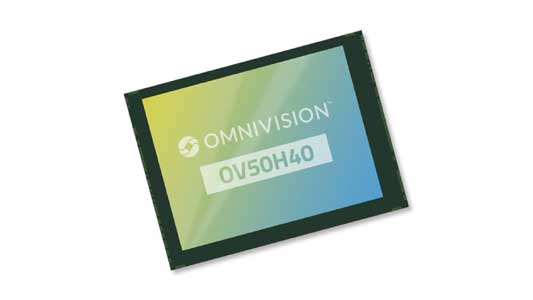OMNIVISION has announced the new OS04D, a 4-megapixel (MP) image sensor that brings 2K resolution digital images and high-definition (HD) video at 30 frames per second (fps) to IP and HD analog security cameras, including smart home, doorbell and baby monitoring devices. The OS04D CMOS image sensor utilizes a high-performance backside-illuminated (BSI) pixel while also providing 40% power consumption savings, as well as improvements of over 30% in signal-to-noise ratio (SNR1) and 40% in sensitivity when compared with its predecessor.
The OS04D image sensor’s 2.0-micron (µm) BSI pixel is based on OMNIVISION’s PureCel®Plus technology and enables higher sensitivity, ultra-low noise and better overall image quality. Select conversion gain (SCG) allows the sensor to flexibly select low and high conversion gain depending on the lighting conditions. On-chip auto explorer control (AEC) and auto gain control (AGC) further accelerate system-on-chip (SoC) booting time. Low power consumption is beneficial for battery operated devices, especially doorbell security cameras. It comes in a cost-effective 1/3-inch optical format and is pin-to-pin compatible with OMNIVISION’s OS04L image sensor as well as other new products that will be launched in the future.
“For security camera image sensors, the most critical component is their ability to produce sharp, high-resolution images. Our new OS04D 2K 4MP CMOS image sensor produces extremely clear images and has fast frame rates to capture real-time, fast-moving HD video,” said Cheney Zhang, senior marketing manager, OMNIVISION. “One of the most important parameters in security and surveillance is low-light image performance – the OS04D is built on our PureCel®Plus pixel architecture to achieve high quantum efficiency and an excellent signal-to-noise ratio, resulting in extremely high sensitivity in low-light conditions. Ultimately, the OS04D image sensor is designed to provide the ideal balance of performance and cost for mainstream IP and HD analog security cameras.”
The OS04D supports MIPI interfaces. It is sampling now and will be in mass production in Q2 2023.












